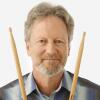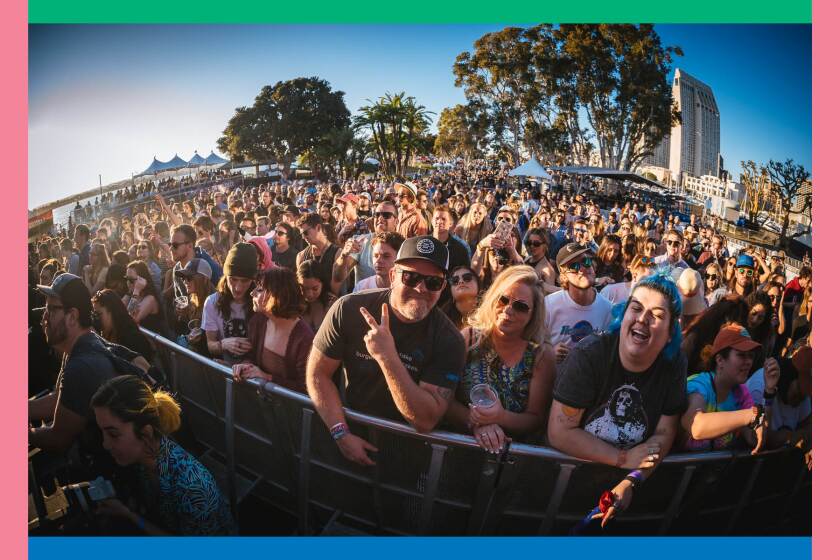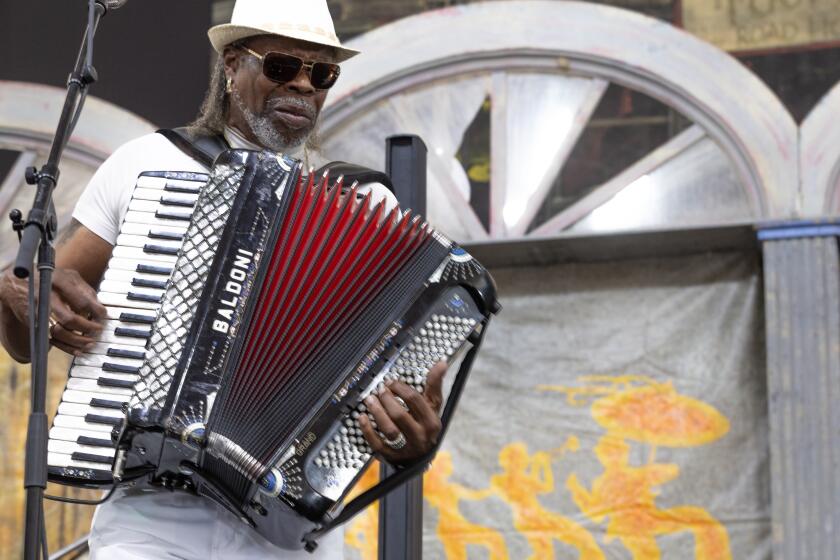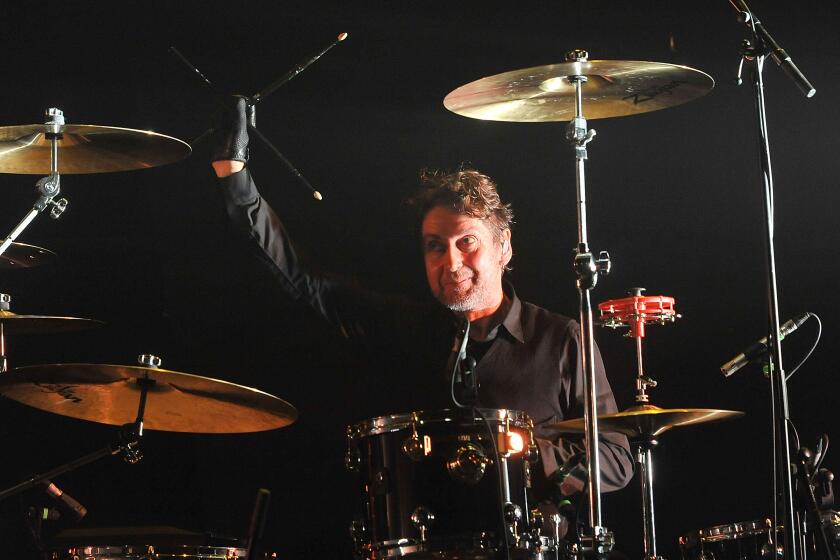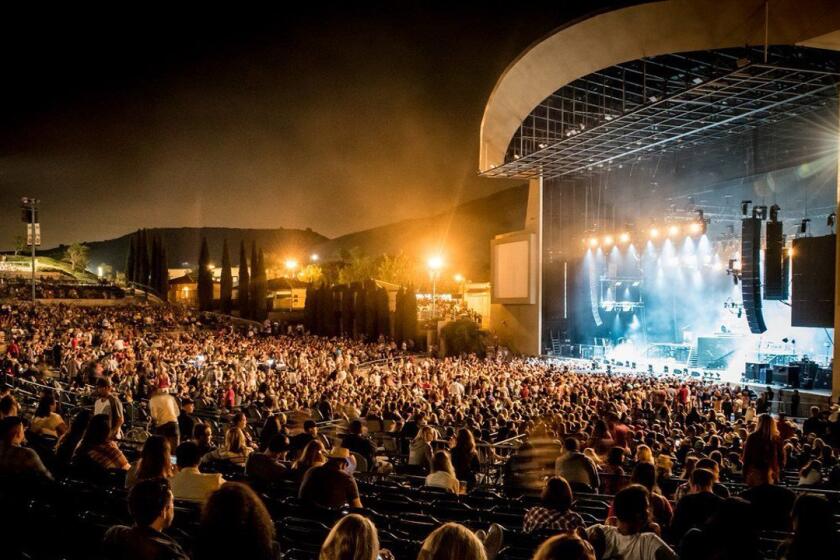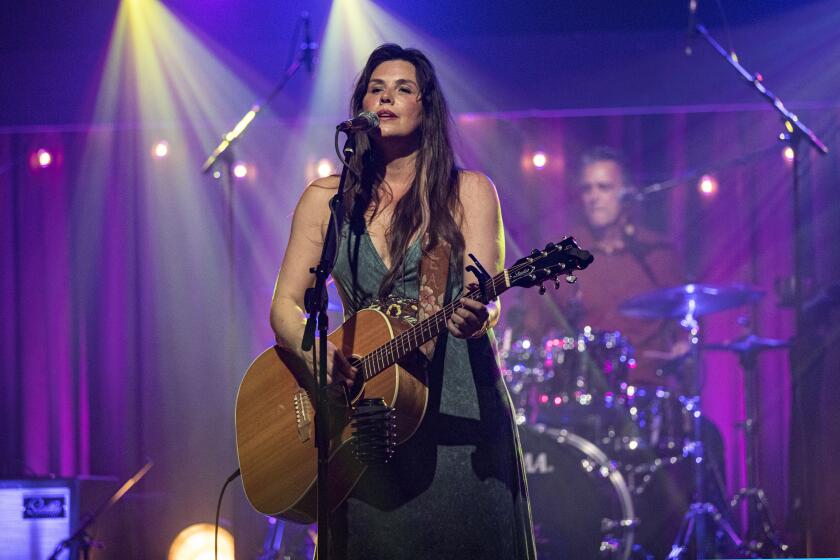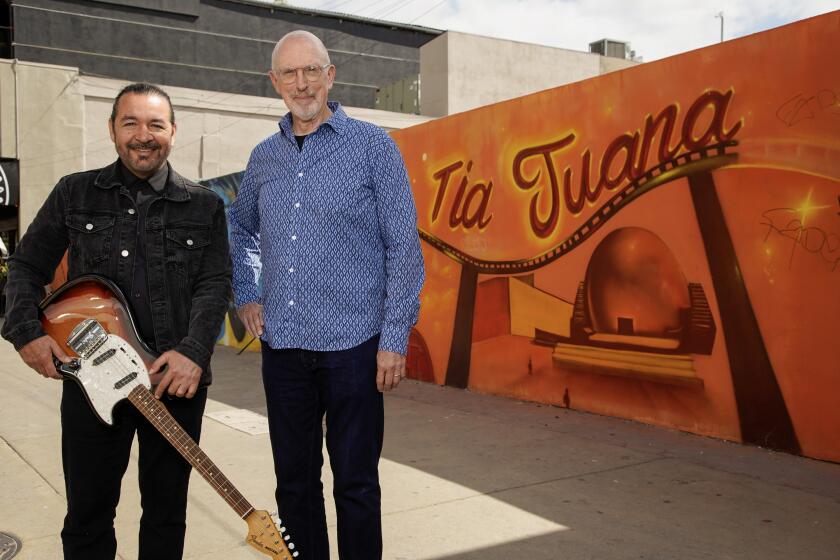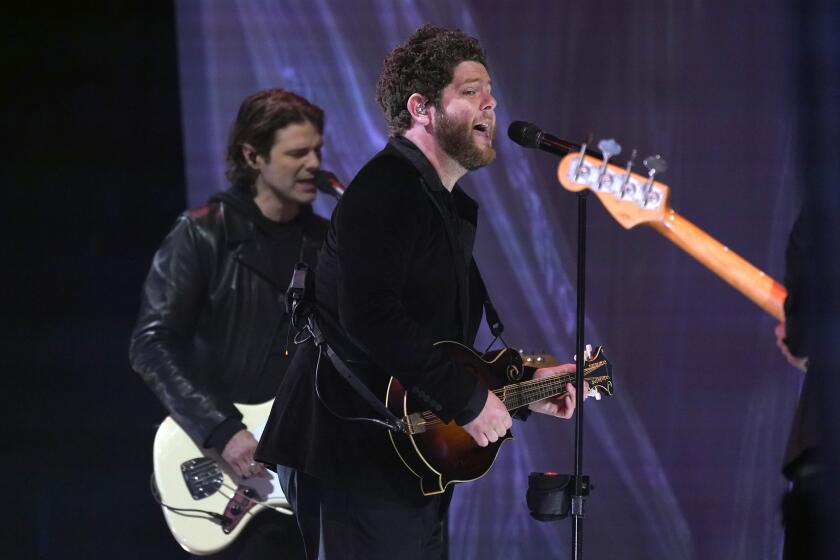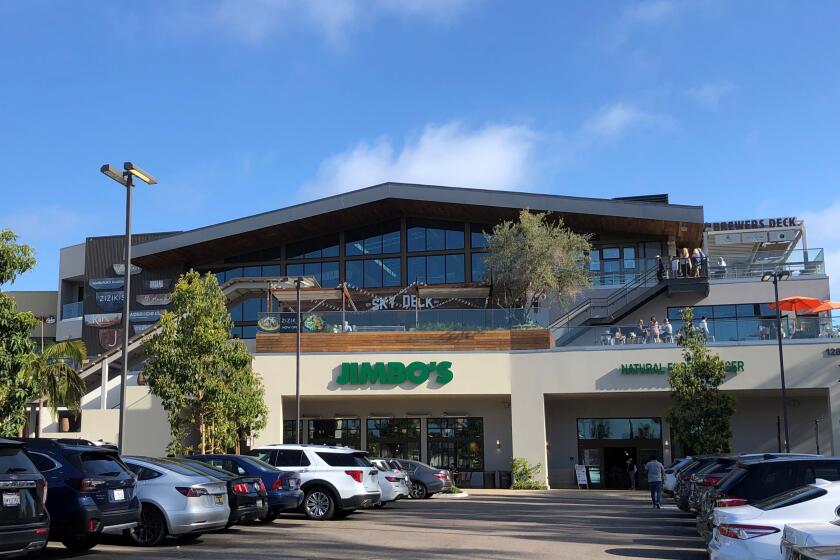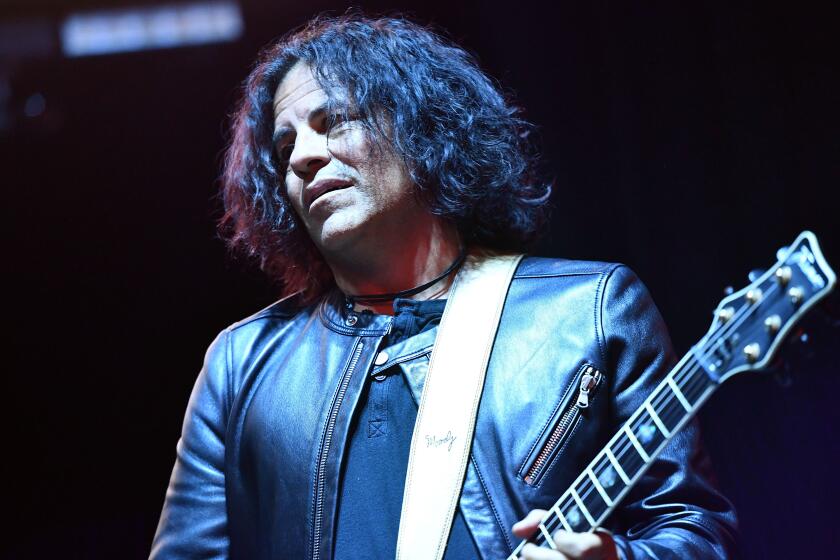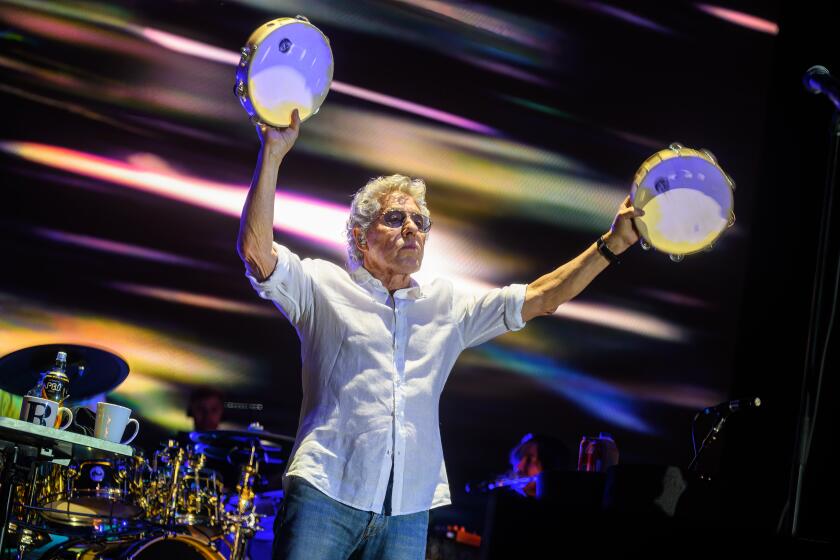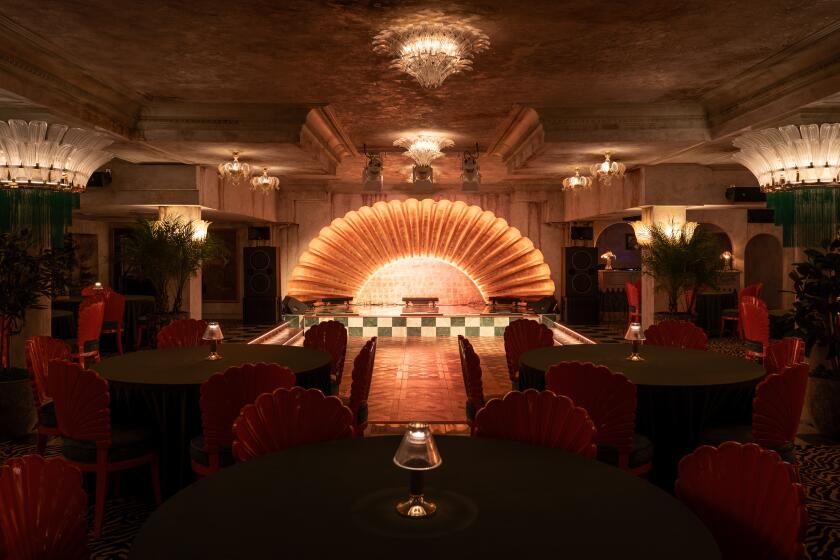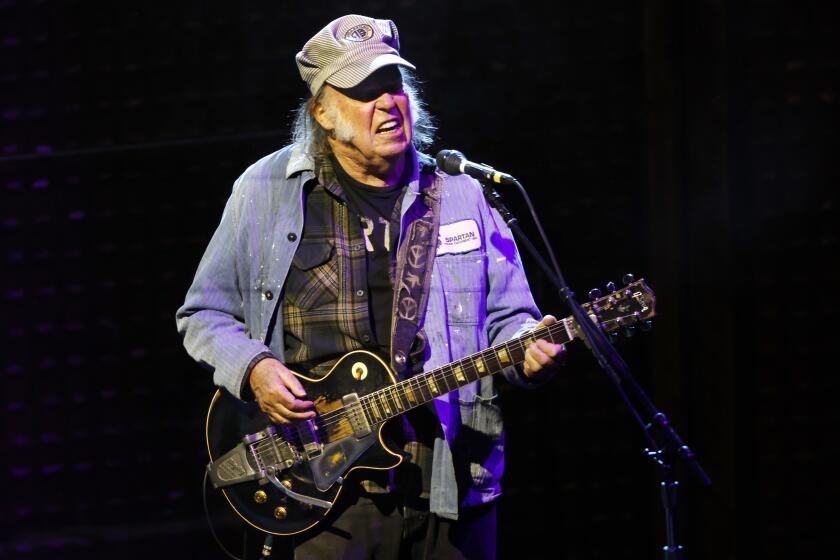Andrea Bocelli eager to sing out on U.S. tour after multiple COVID-19 postponements: ‘This is what I do’
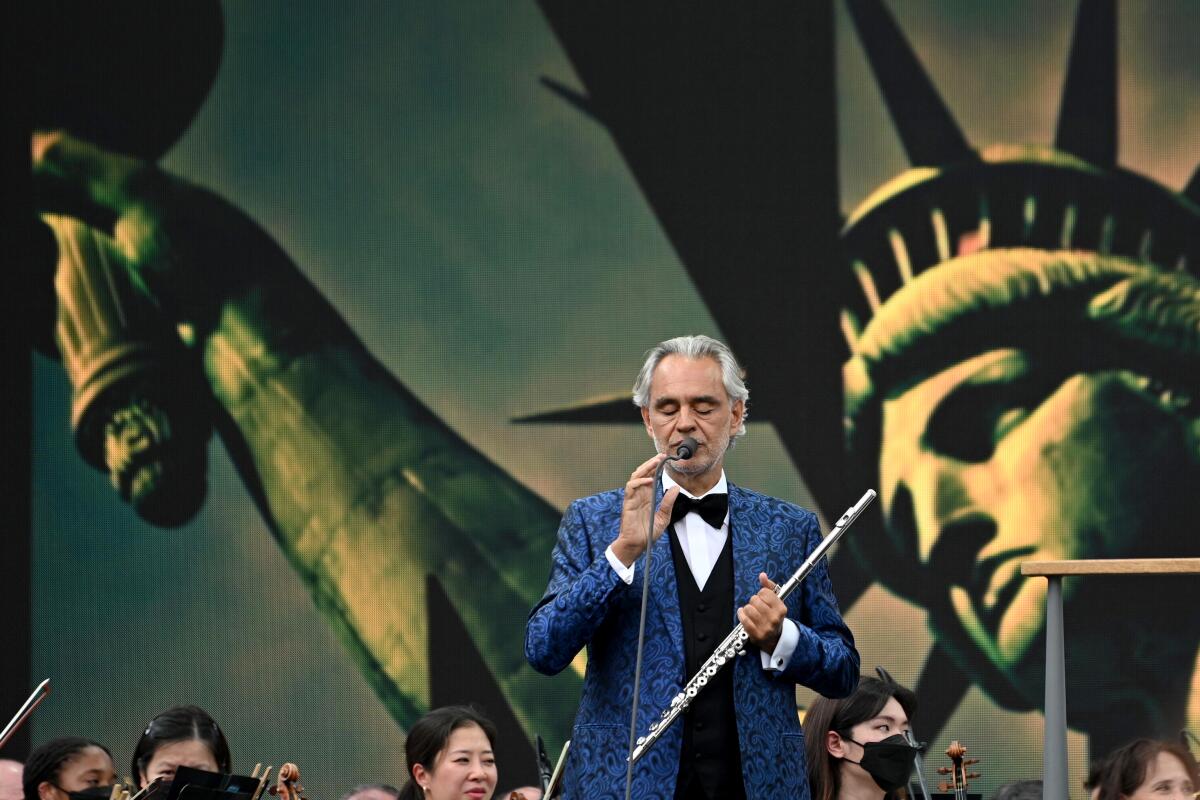
The ‘popera’ superstar has global album sales of more than 90 million. His vocal duet partners range from Tony Bennett and Dua Lipa to Celine Dion and Ed Sheeran
Andrea Bocelli, attorney at law?
Before he became a global sensation as the top-selling opera singer in history — or “popera,” as some have described his enormous crossover success — the Italian superstar earned his law degree at the University of Pisa and worked as a public defender.
Bocelli’s switch from litigation to librettos came only after the blind singer decided his heart was in singing arias and cadenzas, not in analyzing affidavits and appealing convictions.
“I earned a degree in the mid-1980s with a thesis entitled, ‘Natural Law and History according to Montesquieu’ — a topic that I loved and that cost me many months of intense study,” recalled Bocelli, who opens his six-city 2022 U.S. “Believe” tour with a Wednesday concert at Pechanga Arena San Diego. He will perform 11 more U.S. dates in December.
“I studied law, in part, giving in to my father’s insistence,” he elaborated in an email interview from his home near Pisa. “But I’m happy to have pursued these studies because law is a fundamental field for everyone, as it proposes rules for human co-existence.”
Bocelli, 63, used a Braille computer and translation software for his law school studies. By night, he sang and played in piano bars. Like the late Ray Charles before him, he is also an avid chess player.
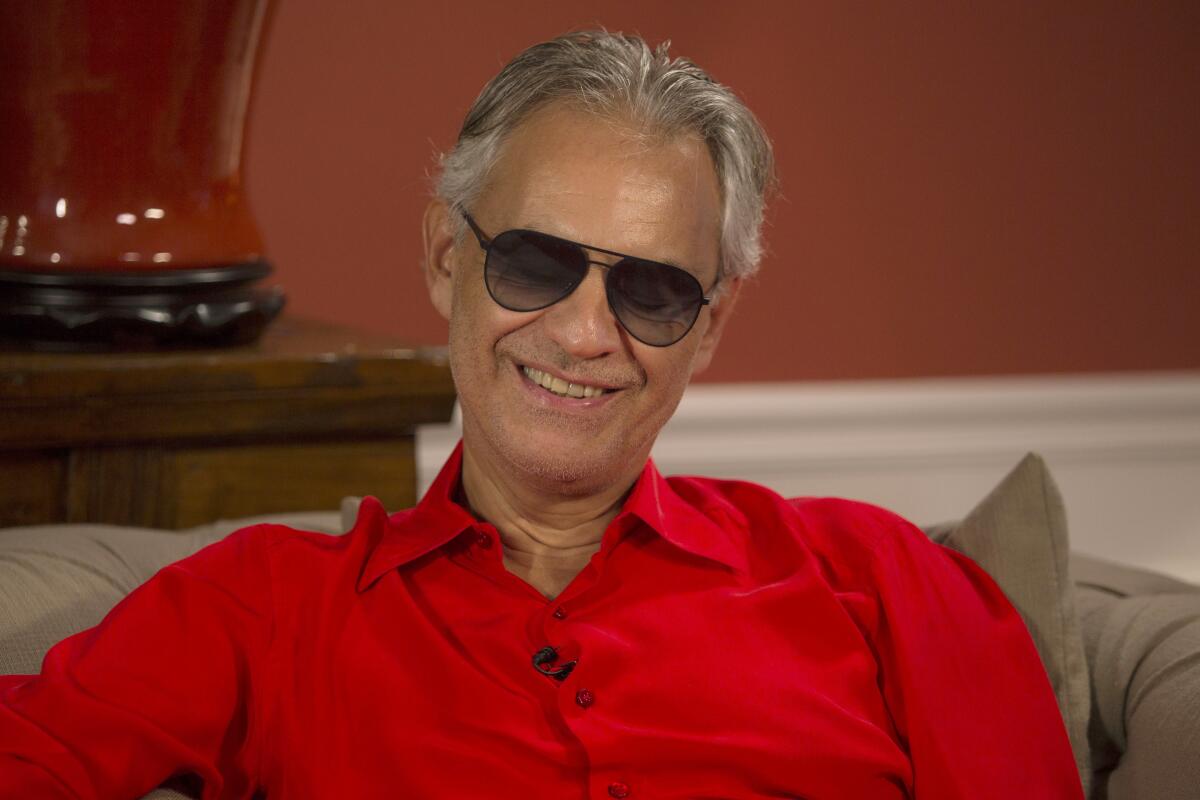
All the right moves
“Chess was my loyal companion as a pastime since I was a boy,” Bocelli said. “It is an extremely pleasurable game, but also a ‘gym’ that shapes and exercises the mind, (something) truly recommended at the youngest age — because children can benefit from it even for their general learning skills.
“Chess playing concurred to form my clear conviction that nothing in this world happens by chance. And luck, in life just as in chess, is not part of the game!”
Pluck and perseverance have been key for Bocelli. So have his pop-friendly, light classical approach and enthusiastic duets with everyone from Celine Dion and Sarah Brightman to Ed Sheeran and Dua Lipa.
Bocelli earned rave reviews Saturday for his Royal Jubilee performance at London’s Buckingham Palace, where he sang “Nessun Dorma,” the famed aria from Puccini’s “Turandot.” In late May, he sang the Elvis Presley classic “Can’t Help Falling in Love” at the Italian seaside wedding of Kourtney Kardashian and blink-182 drummer Travis Barker.
Bocelli’s Wednesday Pechanga Arena San Diego performance will be preceded by a one-off outdoor concert Saturday at Bajamar Oceanfront Golf Resort in Ensenada. His repertoire at both concerts, and on his entire tour, will be much the same.
“I’ll do a mix of pieces from classical composers, popular songs, and actual contemporary songs, all having the common denominator of wanting to offer a sort of medicine for the spirit,” Bocelli said.
Since the release of his 1994 debut, “Il Mare Calmo della Sera,” Bocelli’s albums have sold more than 90 million copies around the world. He pays little heed to scathing reviews from opera critics, who have panned his voice, phrasing and musical approach.
“In the life of every artist, there are positive and negative reviews — it’s part of the game — (and) even Maria Callas fell victim to ferocious hatchet jobs,” said Bocelli, whose impending U.S. tour was rescheduled from 2020, then from 2021, because of the COVID-19 pandemic.
“Early in my career, I must admit that a few criticisms — those that were not constructive or were poisoned with prejudgment — had at times upset me. But if I were truly worried about reviews, I would have opted for other professions. I am serene and accept with gratitude every critique, even negative or very negative, as long as it’s made with intellectual honesty. ...
“I think I am fortunate because my musical taste, (which) is reflected in my artistic work, almost always coincides with that of the general public. I didn’t make up my style at the drawing board. I always aimed to woo beauty, both in the classic and pop spheres, without compromising with the diktats of trends and novelty. I can say that a few words — sincerity, simplicity and intellectual honesty — evoke more than others my way of being and operating, in music and in life.”
Bocelli’s youngest son, Matteo, will be a special guest artist on the U.S. tour by his famous father. In a separate email interview from Italy, the 24-year-old singer cited his dad’s rigor and determination as inspirations for his own career.
“He’s definitely drummed into me that you have to have a very strict work ethic if you want to succeed at this,” said Matteo, who is now completing his debut solo album for Capitol Records.
“As a kid, it felt like my dad was always away working, and that was hard. But now I realize the level of application and dedication needed. He had a family to support, so he had to make it work. I’ve tried to take that lesson into my own career — it’s not just going to happen for you if you don’t put the time in.”
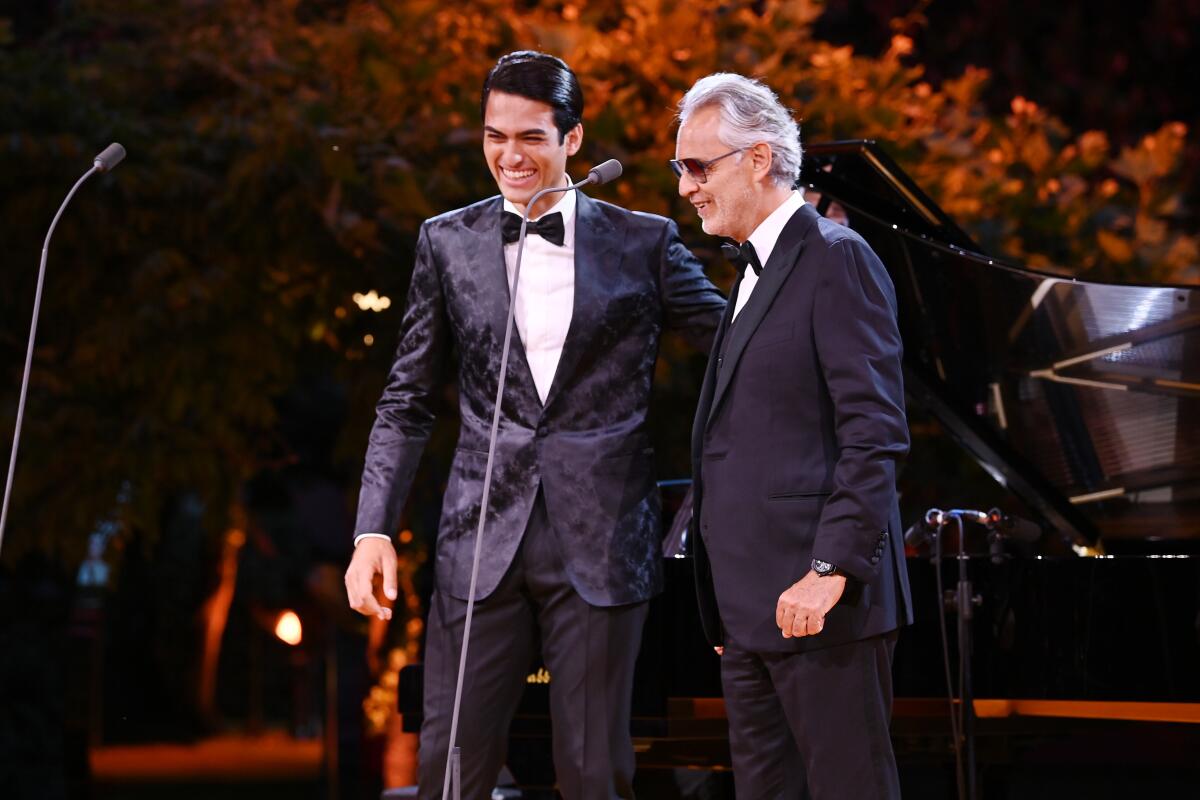
‘Pitfalls of show business’
Andrea Bocelli stressed that he has never pressured his two sons and daughter to follow in his footsteps.
“All three of my children were brought up studying and playing music, precisely because I think it is an important part of one’s education, a priceless foundation for the development of the human spirit,” Bocelli said.
“I never, however, encouraged them to take it on as a profession, also because I know all too well the pitfalls of show business.”
Using a translator fluent in English, Bocelli spoke at length in a recent Union-Tribune email interview. These excerpts have been edited for clarity and length.
Q: Where are you today, and how are you doing?
A: Strangely enough, because it doesn’t happen often, but I’m at home in Forte dei Marmi in Italy. I just finished studying a score, after “warming up” my voice with a series of vocalizations — which is my daily routine.
Q: On Easter Sunday 2020, you and organist Emanuele Vianelli performed a highly watched livestreamed concert in Duomo di Milano. How strange did it feel to perform during a pandemic, without an audience, to end a song and not hear the roar of the audience?
A: It was an emotional and spiritually intense experience. My intention was to sing a prayer for my family and for the world. It was wonderful to be able to raise my hands in prayer to the heavens, through music, and attest to how millions of people wanted the same thing — (to) join me in this prayer — confirming their hunger for spirituality and the will to listen to the message of Holy Easter: of love, redemption and regeneration.
Q: How have you been impacted by the pandemic, personally and professionally, and does music mean something more or different to you than it did before?
A: It was a complex and unprecedented time for us all. Aside from the concerns about this health crisis and deep social wounds, the pandemic, unfortunately, also spread uncontrollable fear and, in effect, limited a fundamental value inherent to humankind: freedom.
I believe that artists carry a great responsibility in society. Managing the pandemic penalized music and culture, neglecting them, and often reducing them to mere accessories. To the contrary, art (including music) is a gift that forms and strengthens the spirit. Its vital role, I’m afraid, has been underestimated.
Q: Prior to the pandemic, how often did you practice your singing and what did your practice consist of?
A: There is no “before” or “after.” My profession is not that much different from that of an athlete: I have to exercise every day, live a healthy lifestyle, without letting myself go — if possible — to excess.
Q: How did your practice regimen change during the lockdown and how are you preparing for your tour?
A: It never changed. Having a pleasant voice, and a predisposition for communicating positive emotions through song, is a talent for which — and I never tire to repeat this — I have no merit. My only merit, and greater responsibility, lies in not wasting it, by always working on it with consistency. This is what I do, what I’ve done, ever since I was a kid.
Q: Do you have a favorite wine? How was the wine that your family made when you were growing up?
A: It’s hard to give just one name… I love Italian wines, because the generosity of our land never betrays those who love and respect it. I believe that the quality of Italian wine has grown considerably in the past quarter of a century, since many producers began interpreting ‘vinification’ as an art and science, both ancient and contemporary.
As for Vino Bocelli, I’m too partial to be able to give you an honest opinion. Every good wine — including the one from our vineyards — must be authentic and sustainable, and must be able to tell a positive story, based on a mutually generous and respectful relationship between human beings and the land where they live and work.
Q: A hypothetical question: Led Zeppelin reunites to record a new version of “Stairway to Heaven” and ask you to sing with Robert Plant? Do you accept? Why, or why not?
A: You’re citing a song that’s monumental, taken from the pages of the history of Rock… There are genres (such as rock, precisely, but also Jazz) that I find interesting and that I listen to with pleasure, but that I don’t approach as an interpreter, because I don’t believe they are “in my chords.”
I have always tried to put my voice at the service of music, but researching a repertory with which I could make a contribution with dignified results, at the least. That said, never say never. Singing duets, mixing two or more voices, is always a way to grow; it’s an intriguing challenge, a wager, a meeting of souls.
Robert Plant, meet Robert Plant!
Q: Ray Charles told me that whenever he considered doing a song written by another artist, he felt he had earned the right as a singer to change the music if he wanted. But, he said, if he didn’t connect immediately with the lyrics in a strong way. He wouldn’t do the song, no matter how much he might like the music. What is your criteria for picking songs by other artists?
A: To interpret a song, I must inevitably be in love with it... It must move me first, so that I can, in turn, move those listening to me. Even when I’m not participating in the composition of the music or text, if I accept to sing a song, it’s because it’s special to me and I internalized it, making it mine.
Q: What do you wish you were better at, and why?
A: I have many shortcomings… And perhaps the worst is not being able to immediately realize what they are. I wish I were less hardheaded: in theory, a virtue, which could easily transform into a vice.
Q: You are very famous and very wealthy. You never have to work another day in your life if you don’t want to. What keeps you going?
A: A long time ago, I wrote a personal prayer. It read, among other things: “Lord, make me a channel of your holy will.” These are words that I often say looking up to the heavens, offering myself to God for whatever He deems most appropriate. My voice, as I said, is a gift I received, and it’s my duty to share it with whoever wishes to listen.
Not a day goes by that I don’t reflect, with gratitude, on how much life has given me. In every corner of the globe, there is someone who has the kindness to appreciate my singing and my artistic work. The best way to thank them is to do so in person, through a live performance. And this is the reason why, until the good Lord keeps giving me the strength and opportunity, I will continue to travel and sing.
Q: A very important question: Who is translating your answers to my questions, and how much do you trust them?
A: The final result will certainly be better than the unfortunate alternative of having me grapple with the English language! Life has taught me how important it is to trust, and thus to trust in those who have the appropriate competencies.
Q: Luciano Pavarotti gave you your first big break as a singer. How important was he to you and what lessons, specifically did he teach you that you carry with you to this day?
A: Meeting Pavarotti meant a great deal to me. He holds a special place in my life, artistically, professionally, and personally. He was generous and, for this, I am truly grateful. He was an artist of extraordinary talent, whose open kindness and esteem for me helped launch my career. He was also an important reference point for my acquiring a strong vocal technique...
Revisit opera superstar Luciano Pavarotti’s candid 2003 San Diego Union-Tribune interview. Asked to rank the importance of wine, women and song, he enthusiastically replied: “Woo! Woo! Woo!”
Q: I interviewed Pavarotti in 2003, when he was 68, and he told me: “You are ‘the King of the High C’s’ when you are 40 or 50. Then you slow down, the power of the body, not the voice.” You are now 63. How has your voice changed, and do you pace yourself differently now?
A: Everything evolves in life. The years that pass bring with them both positive and less positive changes. ... For example, at times I feel I can’t reproduce today, with the same quality, the type of tight vibrato I had in my vocal youth. Whereas, technically, in these later years of my life I’ve reached a certain ease in the high range, which I never expected to do.
For now, my voice is responsive, but we’re in the hands of God. I can serenely imagine myself waking up one day and not having the same vocal quality I tried to build and maintain through the years. When I am no longer able to sustain adequate performances, then that will be the time for me to take my final bow.
Q: Last question: Since you used to be an attorney, what is your favorite lawyer joke?
A: I was born and raised in a region of Italy, Tuscany, that is known for the sharp-tongued and colorful quips of its inhabitants. There’s a joke for everyone, lawyers included, but they’re zingers that aren’t very tactful. And because “verba volant, scripta manent” (“spoken words fly away, written words remain”), I would prefer that readers use their imagination and make up one of their own!
Andrea Bocelli, with Matteo Bocelli
When: 7:30 p.m. Wednesday
Where: Pechanga Arena San Diego, 3500 Sports Arena Blvd., San Diego
Tickets: $130-$360 (plus service fees)
Online: axs.com
Get U-T Arts & Culture on Thursdays
A San Diego insider’s look at what talented artists are bringing to the stage, screen, galleries and more.
You may occasionally receive promotional content from the San Diego Union-Tribune.

